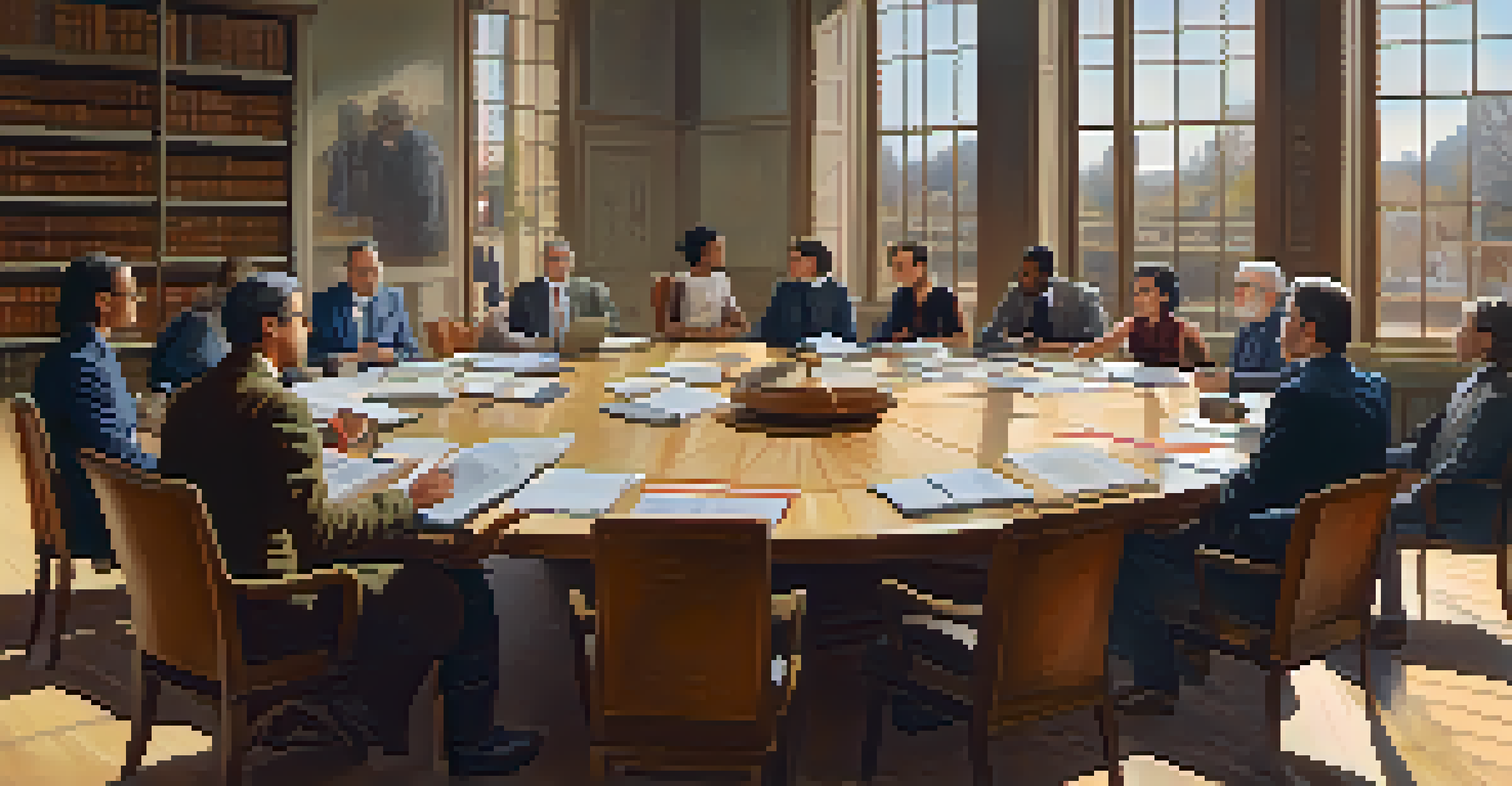Top Tips for Researching Historical Events Efficiently

Define Your Research Focus Clearly
Before diving into the vast world of historical research, it's crucial to define what you're looking for. Narrowing down your topic helps you stay on track and prevents you from getting lost in the sea of information available. Think about specific events, figures, or time periods that interest you.
The past is never dead. It's not even past.
For example, instead of researching the entire World War II, you might focus on the role of women in the workforce during that time. This more focused approach allows you to gather deeper insights and makes your research more manageable.
By setting clear objectives, you can create a roadmap for your research, ensuring that you use your time and resources efficiently.
Utilize Online Databases and Archives
The internet is a treasure trove of resources for historical research. Online databases, digital archives, and libraries provide access to primary sources, scholarly articles, and historical documents that can enrich your understanding of events.

Websites like JSTOR, Google Scholar, and the Internet Archive are excellent starting points. They house a wealth of information that can often be accessed for free or through institutional subscriptions.
Define Your Research Focus Clearly
Narrowing down your topic helps you stay on track and gather deeper insights.
Don't forget to check out local university libraries, which may have their own digital collections. These resources can save you time and lead you to invaluable materials that aren't readily available elsewhere.
Incorporate Diverse Perspectives
History isn't just about dates and events; it's also about the people who lived through those times. To get a well-rounded view of any historical event, it's important to incorporate diverse perspectives, including those of marginalized groups.
Those who cannot remember the past are condemned to repeat it.
For example, when studying the American Civil Rights Movement, it's vital to include voices from various activists, such as Martin Luther King Jr., Rosa Parks, and lesser-known figures who played critical roles.
Reading autobiographies, oral histories, and first-hand accounts can provide unique insights and help you appreciate the multifaceted nature of history.
Take Organized Notes for Easy Reference
As you research, it's vital to keep your notes organized. Use digital tools like Evernote or Notion, or stick to good old-fashioned notebooks—whatever works best for you. Organized notes can significantly streamline your writing process later on.
Consider creating a system that categorizes your notes by themes, sources, or timelines. This will make it easier to find information quickly when you need it.
Cross-Reference Your Information
Ensuring accuracy through multiple reputable sources enhances the credibility of your research.
Additionally, be sure to include citations for your sources. Keeping track of where you found your information will save you time when compiling your bibliography or references.
Cross-Reference Your Information
Not all sources are created equal, and misinformation can easily slip into your research. To ensure accuracy, it's crucial to cross-reference your information across multiple reputable sources.
For instance, if you're studying a historical event, check several books, articles, and academic papers that discuss it. If different sources agree on key points, you can feel more confident in your findings.
This practice not only enhances the credibility of your research but also deepens your understanding by revealing different interpretations of the same event.
Engage with Historians and Experts
Sometimes the best way to get insights into historical events is by connecting with those who specialize in the field. Engaging with historians, attending lectures, or joining online forums can provide you with valuable information and new perspectives.
Platforms like Twitter or academic networking sites such as ResearchGate can help you interact with experts and ask questions about your topic. Don't hesitate to reach out; many historians are eager to share their knowledge.
Engage with Historians and Experts
Connecting with specialists can provide valuable insights and new perspectives on historical events.
Participating in discussions can also give you the opportunity to clarify your thinking and refine your research focus.
Stay Open to New Discoveries
Researching historical events can lead you down unexpected paths, revealing fascinating connections and insights you hadn't considered. It's essential to remain open-minded and flexible in your approach.
Sometimes, a seemingly unrelated fact can lead to a deeper understanding of your main topic. For instance, researching the economic conditions of a specific era might uncover social changes you hadn't anticipated.

Embrace these discoveries as part of the research journey, allowing them to shape and enhance your understanding of history.
Plan Your Time Wisely to Avoid Burnout
Research can be a time-consuming endeavor, and it's easy to get overwhelmed. To maintain a healthy balance, create a research schedule that allocates specific time blocks for different tasks, such as reading, note-taking, and writing.
Take regular breaks to recharge your mind; this can help keep your motivation high. Consider using techniques like the Pomodoro Technique, where you work for a set time followed by a short break.
By managing your time effectively and prioritizing self-care, you'll be more productive and enjoy the process of uncovering historical truths.